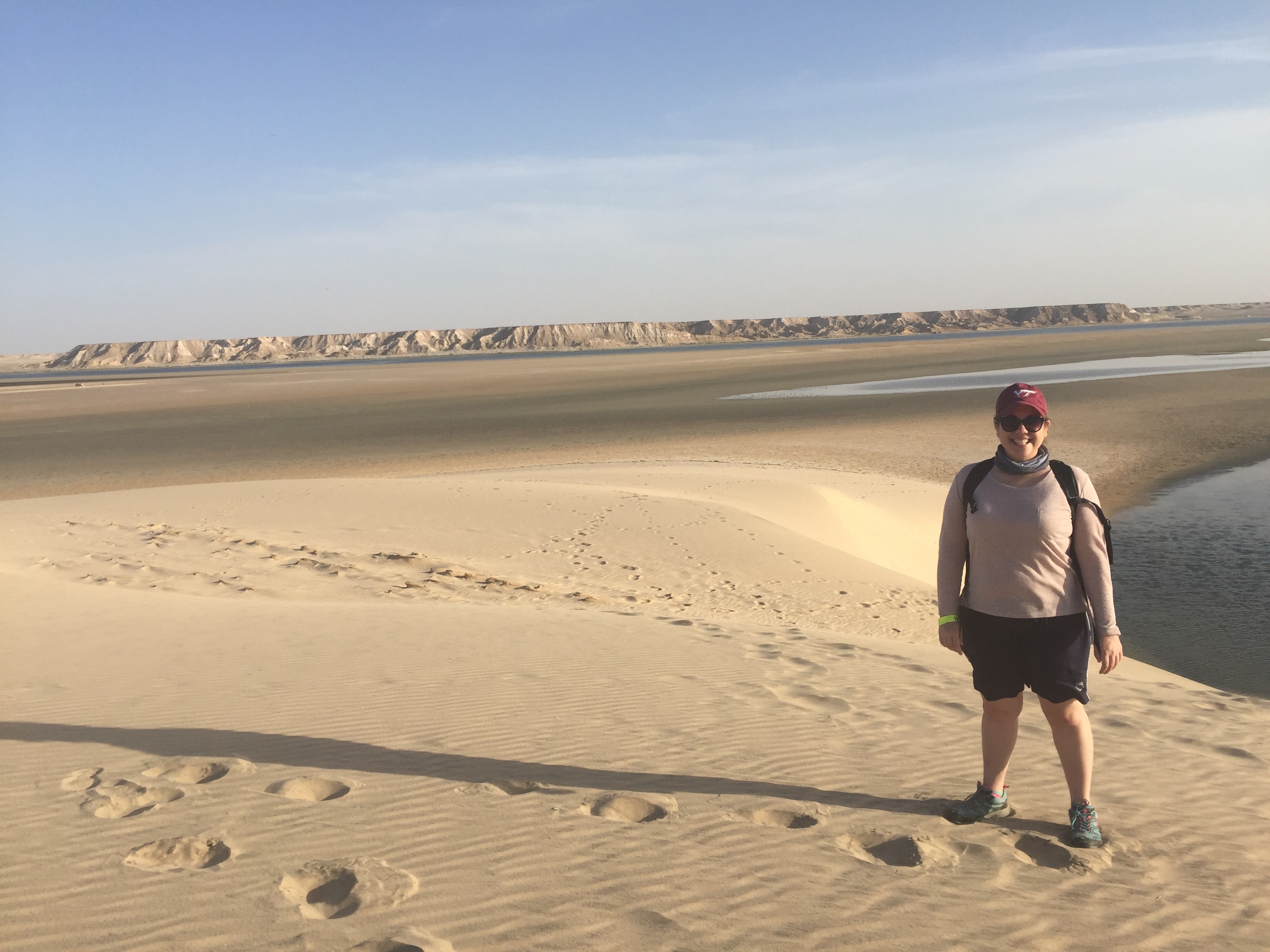OMNR alumna gains new perspectives on international development and humanitarian relief work
May 11, 2021

By Lindsay Key
Just a few weeks after Caitlin Callahan was born in Washington, D.C., in 1989, she and her mother were on a plane flying over the Atlantic Ocean, headed for Malawi. Caitlin’s father, a foreign service officer with the United States Agency for International Development (USAID), was stationed there. Throughout her childhood, Caitlin lived on more than four continents and in multiple countries, including Malawi, Botswana, Romania, El Salvador, and the United States. She wouldn’t have it any other way.
“Growing up, we got to do a lot of cool stuff that kids in the States would not have gotten to do,” she said. That included everything from spending weekends viewing African wildlife at a Botswanan reserve to hiking an active volcano on a trip from El Salvador to Nicaragua. Experiencing so many unique cultures at a young age led Caitlin to pursue an undergraduate degree in anthropology at James Madison University, and then to follow in her father’s footsteps working in international development.

Building in-country support
Since 2011, she has worked for Macfadden, an international development consulting firm based in Washington D.C., where, in 2018, she became Deputy Team Lead* for Personal Services Contract recruiting. In her role, she partners with USAID’s Bureau for Humanitarian Assistance (BHA) to facilitate the recruitment of contract positions that support humanitarian relief efforts. She manages a team of more than 15 recruiters and administrative staff who are responsible for supporting BHA in this area. The Bureau has been the driving force behind sending Americans to help with a large range of devastating humanitarian crises around the world, including human-made and natural disasters like earthquakes, floods, human trafficking, conflicts, and more.
“Personal service contracts are a unique hiring mechanism in which individuals enter into a contract that establishes an employee–employer relationship with USAID. In BHA, PSCs fill critical roles in humanitarian assistance-related jobs,” said Caitlin. “These are full- or part-time positions that range from providing technical support on the ground during a disaster to reviewing grant proposals that support humanitarian relief.”
Making the connection between the environment and society
Understanding global natural resources is a key component of successful international development work, and that’s why Caitlin started the Center for Leadership in Global Sustainability (CLiGS) Online Master of Natural Resources (OMNR) degree in 2016.
“I had been thinking about grad school for a while,” recalled Caitlin. “Growing up in a natural environment, and spending a lot of time overseas, I experienced so many different parts of the natural world and want to protect them. I realized that natural resources is something I really care about and want to dedicate my time to.”
Finding opportunities for leadership
The program’s online format allowed Caitlin to complete the degree while still gaining valuable experience at Macfadden. The leadership focus of the program also helped her gain a new perspective in her supervisory role at work. While a student in Dr. Kieran Lindsey’s Global Issues in Environmental Sustainability course, Caitlin led a student discussion group. “I was so impressed with the depth, nuance, and creativity Caitlin brought to that task,” said Lindsey, the Director of the Online MNR program at Virginia Tech. “Her prompts resulted in very lively conversations that wove the culture of South Africa, where we later met as a class for a 10-day study abroad program, with the environmental sustainability issues we were studying. I received wonderfully positive reviews of Caitlin's work from the students in her group.”

Expanding a sustainability worldview
Not surprisingly, Cailtin participated in three Global Study experiences during her time in the program, far surpassing the one-experience requirement. In October 2016, she traveled to China, where her study group worked with Business Environment Council (BEC), a Hong Kong-based charitable membership organization, to analyze the impact of proposed carbon tax. In May 2017, she traveled to South Africa during one of the country’s largest droughts and learned about strategies that local business owners were using to source water. In November 2017, she traveled to Morocco and interviewed community members in one of the country’s Southern provinces about the effects of the area’s kite surfing tourism on the natural environment.
As a result of her experiences in the OMNR, Cailtin feels more well-rounded as an international development practitioner. “Now, when working in the context of international development, I think more broadly about why conflicts exist,” said Caitlin. “A lot of times, conflicts emerge over resources, and that really relates back to the topics we covered in the program. It shows the importance of natural resources management and general care for the spaces we’re in.”
*Views and opinions expressed represent personal views of the individual and do not represent any specific organization.


